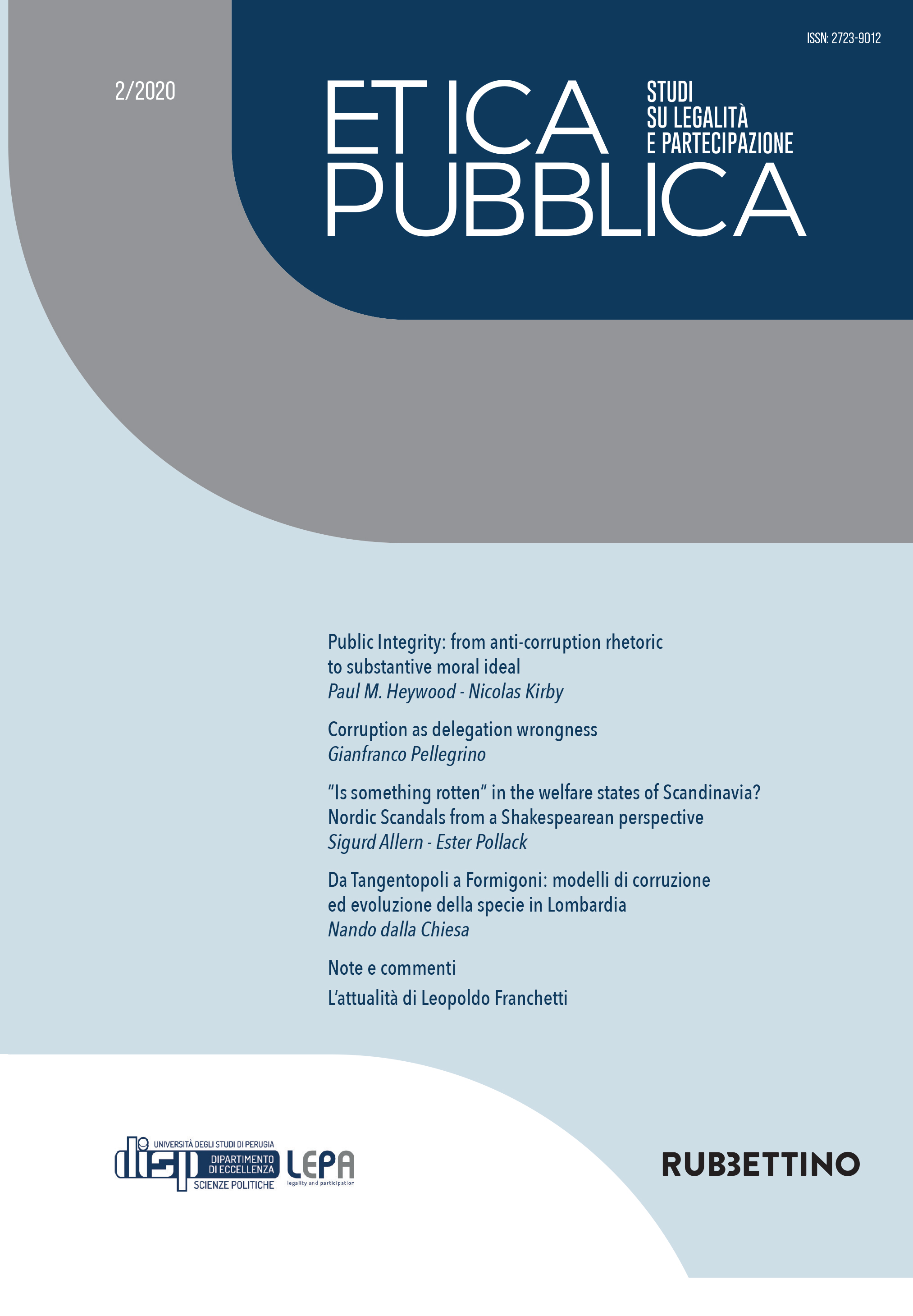Public Integrity: from anti-corruption rhetoric to substantive moral ideal
DOI:
https://doi.org/10.1400/281574Abstract
Recently, policy actors have posited the promotion of public integrity as a new response to corruption in government and the decline in trust in public institutions. However, often, this use of the term «public integrity» amounts to little more than rhetoric. Upon closer inspection, for many of those advocating its adoption, «public integrity» just means the absence of corruption, or whatever policy instruments will best prevent corruption. Thus, the putative new «public integrity agenda» is not new at all, but rather a rhetorical rebranding of the longer-standing anticorruption agenda. In this paper, we argue that such rhetorical use of the term «public integrity» is not harmless, but in fact risks damage to the overall cause of good governance and in particular the prospects of a genuinely novel, standalone, substantive «public integrity» agenda.





